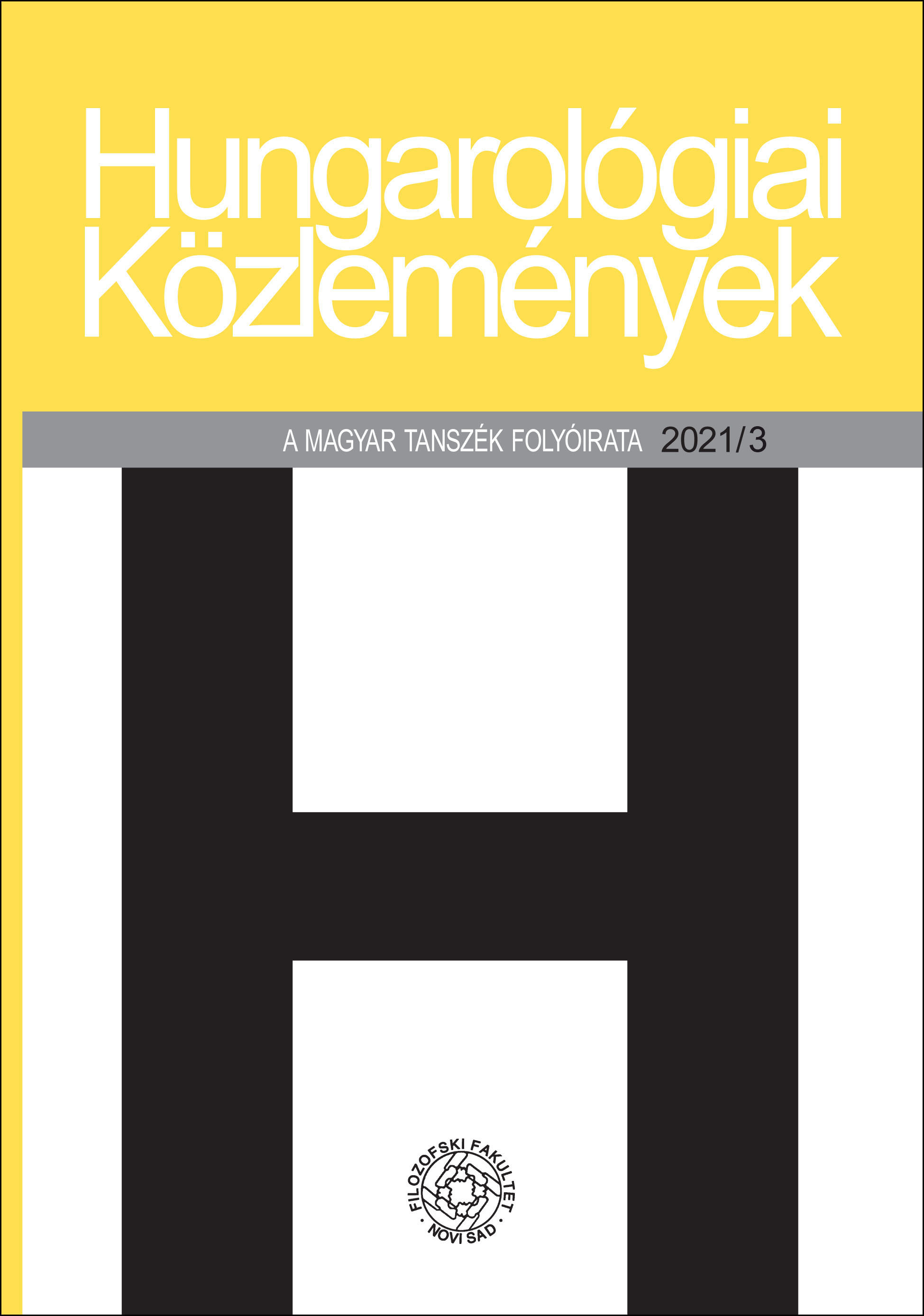A MEGSZÁLLÁS ÉS A RABSZOLGAVÍRUS: A HÁBORÚS TEMATIKA JÓZEF MACKIEWICZ REGÉNYEIBEN
Absztrakt
Csáth Géza nevezetes tanulmányában komplexekre osztja az egót, ezek közé tartozik a nemzeti komplex is. Bár csak röviden jellemzi, még ez sem illik Józef Mackiewicz nézeteihez és kelet-európai történelmi tapasztalataihoz, mintha neki valamiféle soknemzetiségű komplexe lett volna. Fiatalon harcolt a lengyel–bolsevik háborúban, de nem a győzelmet, a függetlenség kivívását ünnepli, hanem azt nehezményezi, hogy a lengyel csapatok a döntő pillanatban nem segítették a fehéreket, így hatalmon maradtak a kommunisták. A másik nagy témája a II. világháború – a keleti frontról nézve. Közép-Európa romokban hevert, a lakosok nagy részét pedig erkölcsileg kompromittálta a kollaboráció, mire a háború végén megérkezett a Vörös Hadsereg. Litvániában és Kelet-Lengyelországban viszont a szovjet bevonulással kezdődött a háború, a békebeli szabad világot szállták meg és kezdték szovjetizálni. Ez a történelmi tapasztalat mindmáig marginalizált, a nyugati propagandával is szemben áll.
Hivatkozások
Csáth Géza. 1978. Egy elmebeteg nő naplója: Csáth Géza ismeretlen orvosi tanulmánya. Budapest: Magvető.
Janion, Maria. 1997. A romantikus paradigma alkonya. Ford. Pálfalvi Lajos. Magyar Lettre Internationale 26. 19–21.
Mackiewcz, Józef. 2007. A kommunista provokáció diadala. Ford. Pálfalvi Lajos. Máriabesnyő: Attraktor.
Mackiewcz, Józef. 2010. Út a semmibe . Ford. Pálfalvi Lajos. Máriabesnyő: Attraktor.
Mackiewcz, Józef. 2017. Minden másképp történt. 1–2 . köt . Ford. Pálfalvi Lajos. Máriabesnyő: Attraktor.
Márai Sándor. 1991. Föld, föld! . . . Emlékezések . Budapest: Akadémiai Kiadó, Helikon.
Miłosz, Czesław. 2011. Családias Európa . Ford. Bojtár Endre et al. Pozsony: Kalligram.
Pamuk, Orhan. 2018. Isztambul: A város és az emlékek . Ford. Nemes Krisztián. Budapest: Helikon.








